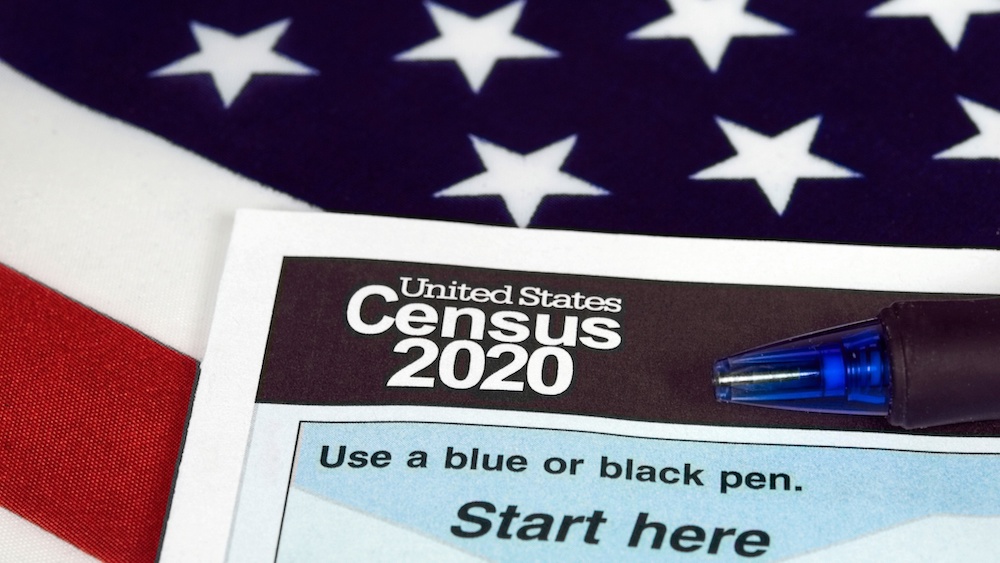If you’re interested in sharing your opinion on any cultural, political or personal topic, create an account here and check out our how-to post to learn more.
____
It’s hard to turn on the news without hearing horror stories about the devastating effects of the coronavirus pandemic. Whether we’re talking about statistical modeling to predict the continuing spread of the virus, allocating the inadequate supplies of COVID-19 tests, hospital bed shortages or providing for those who rely on public programs like free breakfasts and lunches at now-shuttered schools, planning an effective response to the outbreak relies heavily on accurate data. While we’re relying on the Centers for Disease Control to gather data about the spread of the coronavirus, long after the pandemic is over, we will also need that data combined with the data collected by the U.S. Census Bureau to inform key government funding and policy decisions for an entire decade to come.
Procedures put in place to combat COVID-19 have also cancelled the normal process of door-to-door counting that is an essential part of census collection. But every person in the United States can still complete the census online and census forms have been mailed throughout the country. While we are in the midst of this pandemic, we must remember that federal, state and local governments rely on information from the Census Bureau to allocate funds for programs that promote the well-being of our communities — both in periods of relative normalcy and in times of emergency. The public health and financial crisis that will follow the aftermath of the pandemic underscores the importance of filling out the census.
When the pandemic is over, we'll need strong local and state public officials to rebuild our communities. The census results will determine the number of seats each state will have in the U.S. House of Representatives and the data will be used to draw congressional and state legislative districts. In addition, federal agencies rely on census data to monitor discrimination and enforce civil rights laws, including voting rights and equal employment opportunity.
While we often talk about the census as a tool to determine political representation in Congress and other elected bodies, the data have a much wider impact. The data also help determine the allocation of resources, including funding and policy decisions about programs and institutions that play heavily into how we live our everyday lives. Census data are used to determine how hundreds of billions of dollars flow into communities for more than 100 programs, including for, infrastructure, public transit systems, employment and training, Head Start school lunches and block grants for healthcare — all critical services that must be rebuilt as we make our way out of this pandemic.
Black women and our families are disproportionately affected by poverty and rely on federal programs like these that are designed to alleviate its impact and are based in whole or in part on census-derived data. For example, in 2015, Black children comprised 41% of the children served by the Child Care and Development Fund, which provides childcare that allows low-income parents to work or continue their education. That same year, one in four Black Americans (26%) received Supplemental Nutrition Assistance Program (also known as SNAP) benefits.
Black women and our families stand to lose a lot if we are not counted — not only in representation but also in funding and programs our communities need. Black families and other families of color are often undercounted in the Census.
As the nation embarks on our new post-outbreak reality of social distancing, anxiously watching the news and preparing for what’s ahead, it is critical that Black women and our families take the time to be counted. Census forms are already in the mail and provide instructions about how to respond. It is estimated that it will only take 10 minutes to complete, and can be done by mail, phone and, for the first time ever, online.
So, while we’re “sheltering-in-place” at home, fill out those census forms. Not only is it our civic duty to be counted in 2020, it’s likely the quickest and easiest decade-long impact we can have to influence critical policies and programs that serve our communities.
____
Marcela Howell is the founder and president of In Our Own Voice: National Black Women’s Reproductive Justice Agenda. You can follow her work on Twitter at @BlackWomensRJ.

